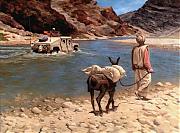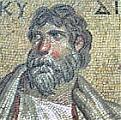...There is a widespread belief in both British special forces and line regiments that American tactics are heavy-handed and counter-productive; that firepower continues to be used as a substitute for a "hearts and minds" policy; that local people will never be persuaded to support Coalition forces unless Americans, in uniform and out, treat ordinary Iraqis vastly better than they do today.
Historical parallels should be cited cautiously. But it is impossible to study any informed critique - including some written by Americans - of operations in Iraq without recalling the Vietnam debacle. There, too, most Americans treated ordinary Vietnamese with contempt, whatever their political allegiance. American convoys forced Vietnamese vehicles off the road, killed peasant livestock with impunity, brought down fire on suspected enemy positions heedless of civilians in the target zone, and treated even educated, professional Vietnamese with condescension.
All this is being repeated in Iraq, with predictable and identical consequences. Iraqis feel a bitter resentment towards foreign troops, whom few would call liberators without irony. US special forces are perceived as behaving, if anything, worse than line combat units because they have a wider and more aggressive mandate, an intensely macho ethos, and less accountability....
In fairness, we should acknowledge that when Britain was "top nation" in the last days of empire, the British Army was sometimes less good at "hearts and minds" than we delude ourselves. Things happened in Kenya during the Mau Mau insurgency, in Cyprus, Aden and elsewhere that would today result in an orgy of war crimes trials.
Counter-insurgency experts and many special forces officers of all nationalities would assert that it is impossible to fight a campaign of the kind being waged in Iraq with completely clean hands. The enemy strives to goad or deceive Coalition forces into actions that will harm innocents. In Northern Ireland, the British Army learned over 30 years how hard it is to fight insurgents without alienating the civil population.
In Iraq, the problem is multiplied many times by the gulf of language and culture, and by the fact that the declared allied aims are probably unattainable. With wholly inadequate forces on the ground, the Americans and British are striving to hold the country together as a unitary state; to restore economic and social activity; and to enable local forces to provide security against criminality as well as terrorism. All this, in place where historically law and order has been enforced exclusively by terror, torture and summary execution.
There is a further dimension, even more fundamental. From the day the first American forces crossed the border into Iraq in 2003, neither they nor their government have resolved the issue of whether they are there to serve Iraqi interests, or those of the United States. Whatever Washington may say, most Americans think they are working for their own country...
It is often justly said that the US army respects the British, and in particular our special forces. But mass matters, and we do not have it. There is no way of getting around this. If Britain, with its tiny armed forces, chooses to engage alongside the US in Iraq or anywhere else, we should never again delude ourselves - as have so many British prime ministers - that the mere fact of throwing a few chips on the table will enable us to call the turn of the wheel.
Reading all that I have written above, I dislike it because British bleating about our position vis a vis the United States sounds so unattractive. There is a case for putting up and shutting up, acknowledging that we are in Iraq whether we like it or not, and should simply persevere.
Yet are the things true, said by people like Ben Griffin and John Geddes? The answer is almost certainly "Yes". They are what make it so hard to be optimistic about Iraq and what our forces are trying to do there, hanging on to American coat tails.










Bookmarks